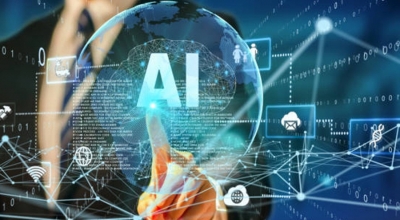Artificial intelligence (AI) has been rapidly transforming the world we live in. From self-driving cars to chatbots, the influence of AI can be seen in every sector. With advancements in technology, AI has started to replace many human jobs, leaving many wondering about its impact on the future of employment.
As AI technology improves, more and more tasks previously done by humans will become automated. This will inevitably lead to job losses, particularly in industries where simple, repetitive tasks are commonplace. However, this does not necessarily mean the end of employment opportunities for human beings. Instead, it will create a new type of work, requiring different skills and abilities.
One of the most significant areas where AI is already making an impact is journalism. AI-powered news algorithms are already in use, scanning and filtering massive amounts of data to create news stories. This means that journalists may need to adapt to work more collaboratively with AI technology. AI can help journalists to identify patterns and trends in data that they may miss, allowing them to produce more accurate and relevant news stories.
In creative writing and content creation, AI is becoming a popular tool for content creators. AI technology can produce original content based on given parameters, like topic, style, and tone. This can make content creation faster and more efficient, but it also raises questions about the role of creativity in writing. However, AI cannot replace the human touch in writing. Emotions, experiences, and perspectives are unique to humans and are essential elements of creative and engaging content.
Editing is another area where AI technology can make a significant impact. AI-powered grammar and spell-checking tools can improve the quality of written work, but it’s important to remember that AI is not perfect. Human editors bring a level of nuance and interpretation to the editing process that AI cannot match.
While AI technology has the potential to replace some jobs, it’s worth noting that it can also create new employment opportunities. The development and maintenance of AI systems require specialized skills, including programming, data analysis, and machine learning. These jobs require a deep understanding of AI, which means that workers with these skills will be in high demand.
To stay ahead of the curve, it’s essential to recognize the areas in which AI is already making an impact and to develop skills that are complementary to AI. This means that workers must become more flexible and adaptable. They must be willing to embrace new technologies and learn new skills.
In conclusion, AI technology is already transforming the future of jobs in many sectors. While it may replace some human jobs, it can also create new opportunities, requiring new skills and abilities. Workers who can adapt to the changing landscape of employment and who possess the skills to work collaboratively with AI will be best positioned to thrive in the future. In the world of technology, journalism, and content creation, human creativity, emotions, and perspectives are still the essential elements that drive progress and success.
PNN
